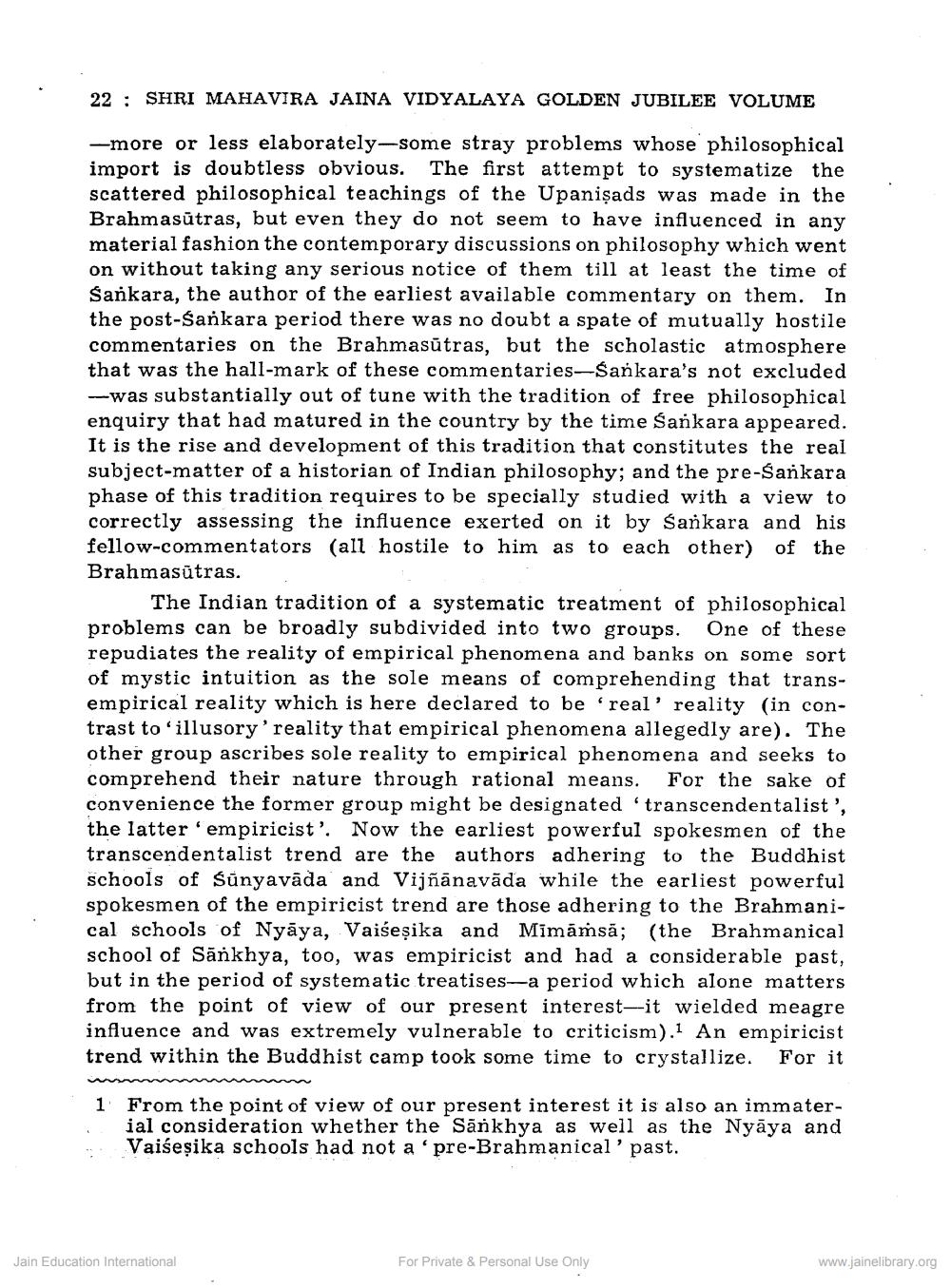Book Title: Logical and Historical Significance of Jaina Philosophical Tradition Author(s): K K Dixit Publisher: Z_Mahavir_Jain_Vidyalay_Suvarna_Mahotsav_Granth_Part_1_012002.pdf and Mahavir_Jain_Vidyalay_Suvarna_ View full book textPage 2
________________ 22 : SHRI MAHAVIRA JAINA VIDYALAYA GOLDEN JUBILEE VOLUME -more or less elaborately-some stray problems whose philosophical import is doubtless obvious. The first attempt to systematize the scattered philosophical teachings of the Upanişads was made in the Brahmasūtras, but even they do not seem to have influenced in any material fashion the contemporary discussions on philosophy which went on without taking any serious notice of them till at least the time of Sankara, the author of the earliest available commentary on them. In the post-Sankara period there was no doubt a spate of mutually hostile commentaries on the Brahmasūtras, but the scholastic atmosphere that was the hall-mark of these commentaries-Sankara's not excluded -was substantially out of tune with the tradition of free philosophical enquiry that had matured in the country by the time Šankara appeared. It is the rise and development of this tradition that constitutes the real subject-matter of a historian of Indian philosophy; and the pre-Sankara phase of this tradition requires to be specially studied with a view to correctly assessing the influence exerted on it by Sankara and his fellow-commentators (all hostile to him as to each other) of the Brahmasūtras. The Indian tradition of a systematic treatment of philosophical problems can be broadly subdivided into two groups. One of these repudiates the reality of empirical phenomena and banks on some sort of mystic intuition as the sole means of comprehending that transempirical reality which is here declared to be real' reality (in contrast to illusory'reality that empirical phenomena allegedly are). The other group ascribes sole reality to empirical phenomena and seeks to comprehend their nature through rational means. For the sake of convenience the former group might be designated 'transcendentalist', the latter empiricist'. Now the earliest powerful spokesmen of the transcendentalist trend are the authors adhering to the Buddhist schools of Sūnyavāda and Vijñānavāda while the earliest powerful spokesmen of the empiricist trend are those adhering to the Brahmanical schools of Nyāya, Vaišeşika and Mīmāṁsā; (the Brahmanical school of Sānkhya, too, was empiricist and had a considerable past, but in the period of systematic treatises-a period which alone matters from the point of view of our present interest-it wielded meagre influence and was extremely vulnerable to criticism).1 An empiricist trend within the Buddhist camp took some time to crystallize. For it 1 From the point of view of our present interest it is also an immater ial consideration whether the Sankhya as well as the Nyāya and Vaiseșika schools had not a 'pre-Brahmanical' past. Jain Education International For Private & Personal Use Only www.jainelibrary.orgPage Navigation
1 2 3 4 5 6 7 8 9
